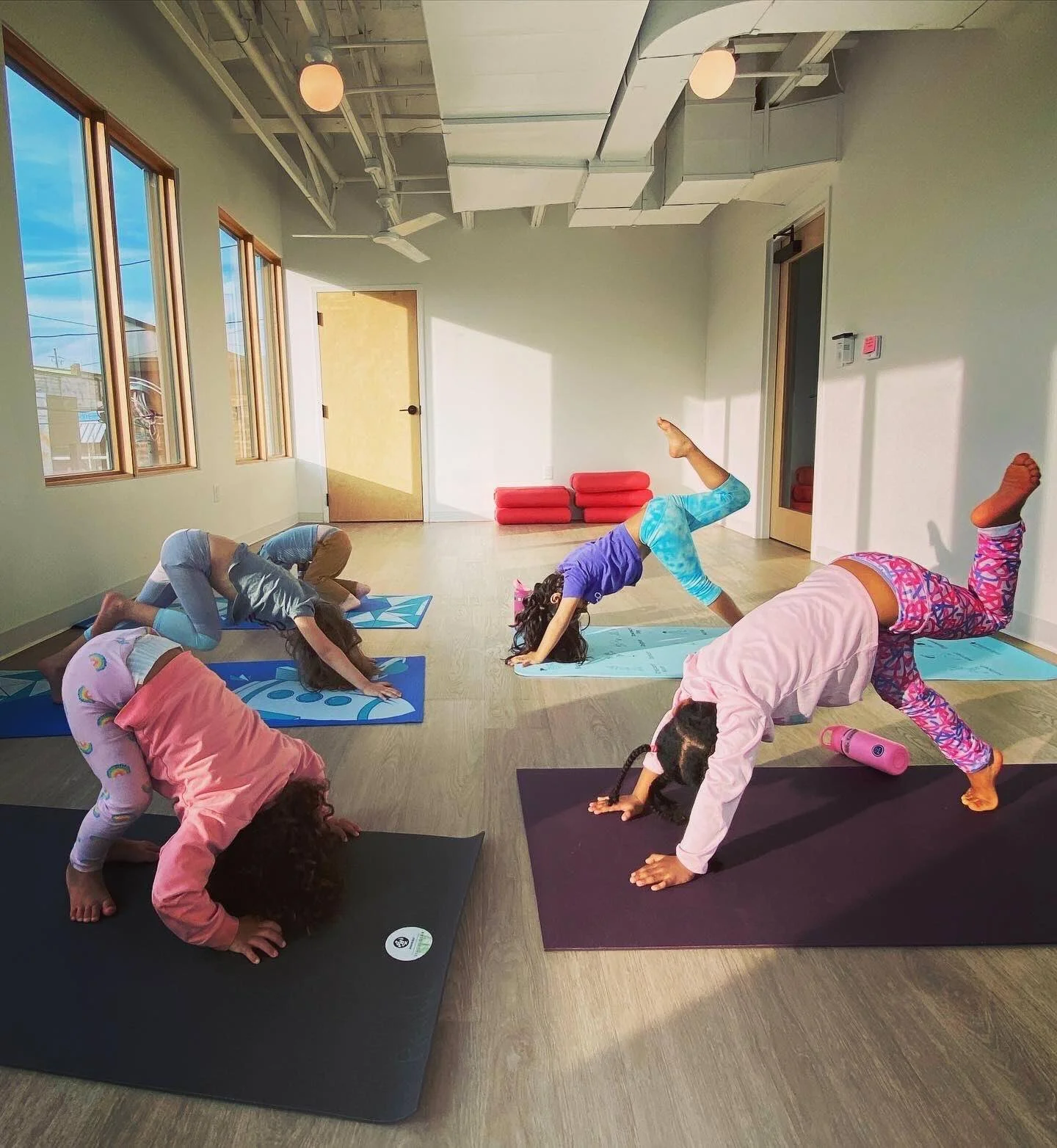YOGA
BENEFITS OF SENSORY BASED YOGA for KIDS
Sensory play combined with yoga can be incredibly beneficial for children, offering a unique blend of physical, mental, and developmental advantages. This combination is particularly effective because it engages children on multiple levels. Here are some key reasons why sensory play and yoga are important for kids:
Enhanced Sensory Processing
Sensory play helps children develop and refine their use of the five senses. When combined with yoga, it can further enhance their awareness and understanding of their bodies and how they interact with their environment.
Attention and Concentration
Yoga's emphasis on focus and mindfulness, combined with the engaging nature of sensory play, can help improve children's attention spans and concentration levels.
Inclusivity
Both yoga and sensory play can be adapted to suit a wide range of abilities and needs, making them inclusive activities that can benefit all children, including those with special needs or developmental delays.
Motor Skills Development
Both sensory play and yoga activities help in the development of fine and gross motor skills. Yoga improves balance, strength, and coordination, while sensory play often involves activities that refine fine motor dexterity.
Cognitive Growth
Sensory experiences provided during play are fundamental to brain development. They help to build nerve connections in the brain's pathways. Yoga, with its emphasis on mindfulness and concentration, further supports cognitive development, particularly in areas like attention, memory, and executive functioning.
Emotional Regulation / Stress Reduction
Yoga is well-known for its ability to reduce stress and promote relaxation. When combined with sensory play, which can be soothing and engaging for children, it provides a powerful tool for emotional regulation. This can be especially beneficial for children with anxiety or those who have difficulty managing their emotions.
Incorporating sensory play into yoga for kids not only makes the practice more enjoyable, but also multiplies the developmental benefits.
Language Development
Sensory experiences can stimulate conversations and descriptive language use. Yoga poses and flows can be linked with storytelling and thematic play, further enhancing language skills.
Social Skills
Group yoga and sensory play activities encourage interaction, cooperation, and communication among children. This helps in developing social skills and empathy, as children learn to work together and understand each other's space and needs.
Creativity and Problem Solving
Sensory play often involves open-ended activities that encourage creativity and imagination. When integrated with yoga, it also promotes problem-solving skills, as children learn to navigate new poses and sequences.
Self-Expression and Confidence
Both sensory play and yoga provide opportunities for children to express themselves. This self-expression can boost confidence and self-esteem, particularly in children who might struggle with more traditional forms of expression.

